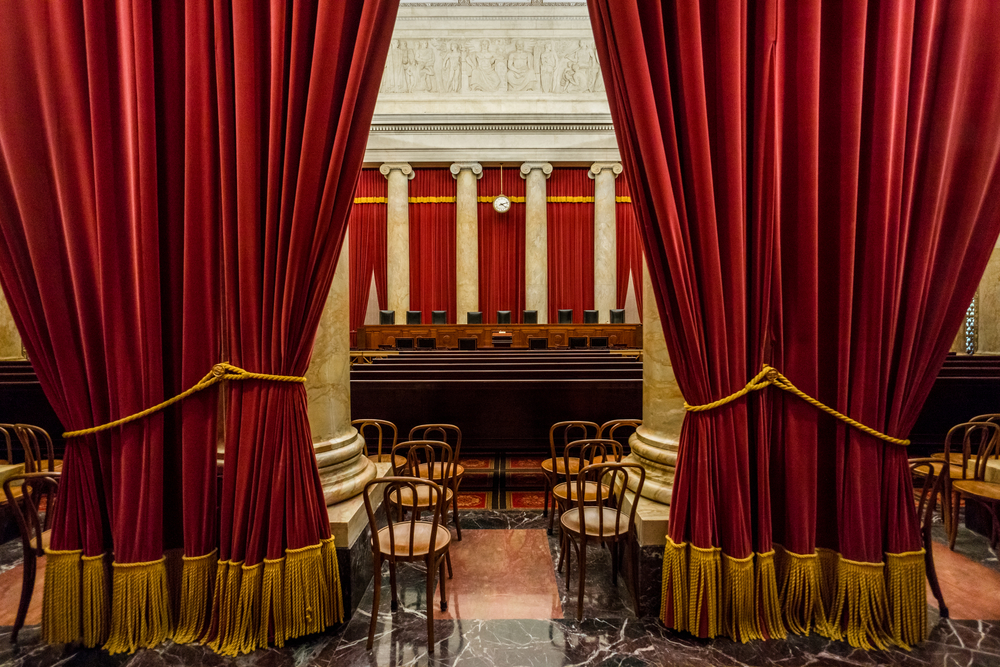Afternoon Briefs: An unusual SCOTUS lineup; suit says Google is a public utility

Image from Shutterstock.
SCOTUS rules for defendant in career criminal case
Two conservative justices supported liberal U.S. Supreme Court justices Thursday to rule that a crime of recklessness is not a “violent felony” requiring a longer sentence under the Armed Career Criminal Act. Justice Elena Kagan wrote a plurality opinion favoring defendant Charles Borden Jr., joined by two other liberal justices and Justice Neil M. Gorsuch. Justice Clarence Thomas concurred in the judgment. (SCOTUSblog, the New York Times, the June 10 decision)
Ohio AG’s suit contends Google is a public utility
Ohio Attorney General Dave Yost filed a lawsuit Tuesday contending that Google is a public utility that can’t favor its own products, services and websites in search results. Google said the suit “has no basis in fact or law.” Yost has also joined 37 other attorneys general in an antitrust suit against Google. (Reuters, the New York Times, Yost’s press release, the June 8 lawsuit)
Senate confirms Biden’s first judicial nominees
The U.S. Senate confirmed President Joe Biden’s first nominees to federal courts this week. Among those confirmed is Zahid Quraishi, who will become the nation’s first Muslim federal judge. The Senate also voted to end the debate on the nomination of U.S. District Judge Ketanji Brown Jackson to the U.S. Court of Appeals for the District of Columba Circuit, making her confirmation “all but assured,” according to USA Today. Jackson has been mentioned as a potential U.S. Supreme Court nominee if a vacancy arises. (The New York Times, USA Today, Bloomberg Law)
Attorney general says tax leaks ‘an extremely serious matter’
U.S. Attorney General Merrick Garland said in a Senate subcommittee hearing Wednesday the leak of wealthy individuals’ tax returns to ProPublica is an “extremely serious matter” that will be at the top of his priority list if the case is referred to the Department of Justice. He did say, however, reporters won’t be compelled to reveal their sources when they are “doing their job as reporters.” Garland also defended the DOJ’s decision to stand by some controversial positions taken during the Trump administration, including its bid to substitute the United States as the defendant in a defamation lawsuit against former President Donald Trump for denying rape allegations. Adhering to the rule of law sometimes means “that we have to make a decision about the law that we would never have made, and that we strongly disagree with, as a matter of policy. But in every case, the job of the Justice Department is to make the best judgment it can as to what the law requires.” (CNBC, the Washington Post, CNN)



